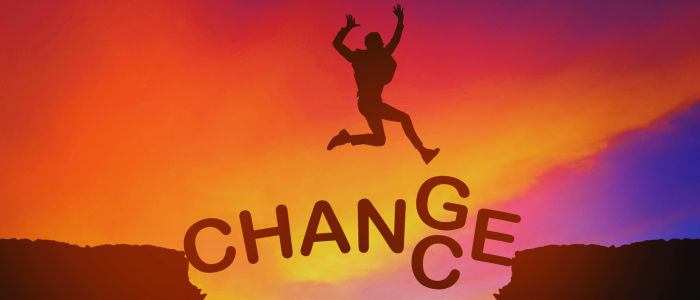(5 min read)
The art of the fresh start
How often have you said to yourself: “I’m definitely starting that new thing on Monday.”?
Forming new habits can be easy: they become automatic over time, with repetition. But, actually creating good habits often requires conscious effort and consistent practice. So don’t be too hard on yourself if you initially struggle to adopt something new. It’s part of what makes us human, so whether you’re planning on healthier eating, an early morning run or a more proactive approach to your personal security, understanding how habits are formed will help you to make the fresh start you're aiming for.
Picking a day for your ‘fresh start’ is also really common. That’s why we have New Year resolutions – the first day of the year is a good starting point. It’s the same for using a ‘big’ birthday, or the start of a new season, or even just the start of a new week. Anything really that gives us the psychological trigger or prompt we need to make a change in our behaviour.

Why are we interested in habits? Because we are fascinated by behavioural science. Understanding how we behave allows us to see how to influence behaviour positively, so that you achieve the outcomes you want. And that behavioural influence is the same for anything – from a weight loss or fitness goal to protecting yourself from cyber attack.
In fact, changing behaviours is at the core of Psybersafe's online cyber security training. Our expertise in behavioural science allows us to design and deliver fun, bite-sized training that changes the way people think and act, so they are better placed to protect your organisation from the increasing threat of hacking and attacks. It’s worth reading the recent speech by Dr Richard Horne, new CEO of the National Cyber Security Agency, where he says we are in a ‘contest for cyberspace’.
Why do we look for a date to start a new habit?
Research has shown that human beings see time in a series of episodes, rather than one single line of time. These episodes are structured with significant dates at their heart.
 For example, Dai et al [1] show that big life events are your temporal landmarks. This could be your birthday, or it could be the anniversary of your first date, an important religious festival or the traditional school term dates. In fact, any event that is more important than your average day can form a trigger in your life.
For example, Dai et al [1] show that big life events are your temporal landmarks. This could be your birthday, or it could be the anniversary of your first date, an important religious festival or the traditional school term dates. In fact, any event that is more important than your average day can form a trigger in your life.
Certain events in our lives are clearly important: getting married, moving house starting university, your first day in a new business. But even little things can be a spark to help you make a change – getting back to work after a holiday, having a new haircut, joining a new club.
What happens when we create a trigger?
These triggers effectively open new mental accounts in your brain. They allow you to see that you can make a break from the past, mentally prepared to take on a new challenge.
In 2014, Hengchen Dai, Katy Milkman and Jason Riis published a research paper called ‘The Fresh Start Effect’. In it, they offer two likely mechanisms for the fresh start effect.
First, we like to think we’re improving over time, so we attribute past mistakes to inferior versions of ourselves. And we use our current self-conceptions to inform our behaviour, so if you look back and think that you’re a harder worker today than you used to be, you will continue to work harder than you used to.

Second, in various activities we often get lost in our day-to-day lives. These trigger days or events force us to pause and look at the bigger picture. So we start to think about our bigger goals or longer-term life plans instead.
Katy Milkman, is the James G. Dinan Professor at The Wharton School of the University of Pennsylvania, and author of the book ‘How to change’. She says: “We’re more likely to pursue change on dates that feel like new beginnings because these moments help us overcome a common obstacle to goal initiation: the sense that we have failed before and will, thus, fail again.”

Have you already made resolutions for 2025? When will you start, and how will you hold yourself to account? In the Psybersafe online training universe, we use short, fun, dedicated episodes to help users see how they can start easy new cyber security habits. And then we send little reminders and reinforcers that are designed to keep those new habits at the top of mind. And it works! As one of our clients says: “Psybersafe has had an immediate positive impact on our organisation. Couldn’t recommend it enough!”
[1] Hengchen Dai, Katherine L. Milkman, Jason Riis (2014) The Fresh Start Effect: Temporal Landmarks Motivate Aspirational Behavior. Management Science. Published online in Articles in Advance 23 Jun 2014 . http://dx.doi.org/10.1287/mnsc.2014.1901
We love behavioural science. We’ve studied it and we know it works. Why not contact us at Dit e-mailadres wordt beveiligd tegen spambots. JavaScript dient ingeschakeld te zijn om het te bekijken. to see how we can help your organisation gain better, long-term cyber security habits?
Sign up to get our monthly newsletter, packed with hints and tips on how to stay cyber safe.
 Mark Brown is a behavioural science expert with significant experience in inspiring organisational and culture change that lasts. If you’d like to chat about using Psybersafe in your business to help to stay cyber secure, contact Mark today.
Mark Brown is a behavioural science expert with significant experience in inspiring organisational and culture change that lasts. If you’d like to chat about using Psybersafe in your business to help to stay cyber secure, contact Mark today.